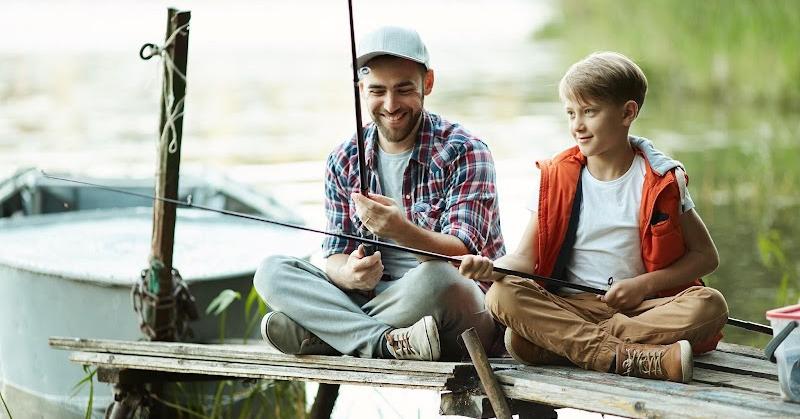Envision venturing out into the great outdoors. Experiencing the magnificence of nature’s ecosystems. Peter Klein takes us on a journey that combines the tranquility of angling and appreciation for our environment’s intricate balance.
Fishing presents a wealth of possibilities for those wanting to appreciate the outdoors. It’s a door to exploration, allowing people to submerge themselves in breathtaking scenes and find hidden gems in rivers, lakes, and oceans. By casting their lines, anglers tap into nature’s rhythms – feeling the soft splashes of water, hearing the birdsong’s melody, and seeing wildlife going about their day.
Benefits of Fishing for the Environment
It offers lots of perks for the environment! It offers recreational and economic possibilities and keeps ecosystems healthy and balanced.
- Preserving and Conserving: It ensures that fish populations stay sustainable for future generations through catch limits and size restrictions.
- Ecological Balance: It helps avoid the overpopulation of certain fish species to keep the environmental balance of aquatic environments.
- Water Quality: Anglers catching fish remove excess nutrients from the water. This improves water clarity and lowers destructive algal blooms.
- Economic Growth: The angling industry strengthens local economies. It brings tourism, recreational equipment sales, and commercial angling operations. All of this creates jobs and improves communities that rely on trawling activities.
Plus, It helps people connect with the natural world, growing stewardship and environmental responsibility.
Health Benefits of Fishing
Trawling – an activity many environment lovers adore – has plenty of health gains. Firstly, it moves your body, like casting and reeling in the catch, which builds muscles and boosts coordination. Secondly, it offers an idyllic and calming environment that helps reduce stress. Lastly, it can be a social event when shared with family and friends, deepening relationships and encouraging community growth.
It can be beneficial for mental health. Being surrounded by the environment is linked to reduced anxiety and relaxation. The repetitive motions of casting and waiting for a bite can also be a form of meditation, helping you to become mindful.
The Role of Fishing in Ecosystems
Angling is essential for ecological balance. It can help control species numbers and prevent illnesses. As well it can be beneficial to the whole environment. It gives economic advantages to local areas and encourages people to look after the planet. If done correctly, it can also be a way to keep the environment safe.
To carry on getting the advantages of this, Peter Klein shares several things that you can do:
- Rules should be made to stop overfishing and protect vulnerable species. This will help maintain healthy fish numbers and prevent unbalances in the environment.
- Catch-and-release should be encouraged. By releasing them back into their home, they can continue their role in the food chain and breeding cycle.
- Making marine protected areas can protect important habitats and allow the fish to be undisturbed. These areas are like sanctuaries for them to breed and grow without interference.
It is essential to understand how it affects ecosystems. By understanding its influence on biodiversity and keeping aquatic environments safe, we can ensure that future generations can experience the joy of angling and the beauty of healthy environments.
Exploring Different Fishing Techniques
Angling is a beloved activity that allows anglers to try out diverse techniques. Fly fishing, trolling, and ice fishing have unique challenges and rewards.
Fly fishing involves throwing a light lure made of feathers or synthetics, using the weight of the line to propel it forward. It’s usually done in rivers and streams, where you must present your flies to look like natural prey.
Trolling involves dragging baited lines behind a boat in lakes or oceans. Changing the speed and depth of the bait can help target fish. It also covers more ground.
Ice fishing is a true test of bravery. Though challenging, it can provide access to fish that are difficult to catch in other seasons.
Fishing as a Source of Connection with Nature
It offers a special connection with nature. It immerses people in the great outdoors and appreciates the different ecosystems under the water’s surface. Casting a line and waiting for a bite brings humans closer to nature and heightens their senses.
Angling involves understanding one’s desires and the needs and behaviors of the fish they aim to catch. This balance between human intent and instincts strengthens the bond between people and the environment. Anglers witness the interactions between different species and appreciate the interconnectedness of living things.
This is unique for its ability to provide solitude amidst nature’s grandeur. People standing on the banks of a lake or floating on tranquil waters become one with their surroundings. The casting of lines becomes meditative, allowing people to escape their worries and find peace in the natural world.
It truly lets people connect with nature. As Rachel Carson said, “Those who contemplate the beauty of the earth find reserves of strength that will endure as long as life lasts. It helps replenish these reserves, enabling us to establish lasting connections with our natural world.
Fishing as a Recreational Activity
Fishing – a long-loved activity. It offers a special, fulfilling link to nature. As you cast your line, you open yourself to a world of peace and excitement – only found outdoors.
Engaging in angling can be a great way to get into the rhythm of nature. Waiting for a bite encourages mindfulness and serenity. You notice the swaying of plants and hear the chirping of birds. All stress and worries leave you, replaced with a peaceful feeling.
It also teaches us about ecosystems. You learn how life forms depend on each other. You watch predators and prey. This makes you realize the importance of conservation.
Then there are the amazing stories you can tell. Every fisherman has tales to tell. Tales of outsmarting a fish or winning against all odds. These stories become part of the culture, passed down through generations.

